Fish it out, dry it out, throw it out — how one family is coping with the Houston flood
This is the first in a series of articles that will follow the Koser family as it rebuilds after Hurricane Harvey.
_____
The house on Turf Valley Drive in the Bear Creek neighborhood of Houston had never flooded before — not once in the 26 years since Larry and Brenda Koser had moved in, not once in the 41 years since the subdivision was built. So although the couple and two of their grown children, Matthew and Micah — had packed bug-out bags just in case, they didn’t think they would use them as Hurricane Harvey arrived.
And, at first, they didn’t. The night of Sunday, Aug. 27, was rainy, Monday morning more so. Then, by 4 in the afternoon the water was knee deep on the front lawn of the single-story home, making it impossible to use any of the cars that were parked uselessly in the driveway. So the Kosers grabbed their bags and left through their backyard, cutting a hole in their fence and wading to a nearby community center that was serving as a makeshift shelter.
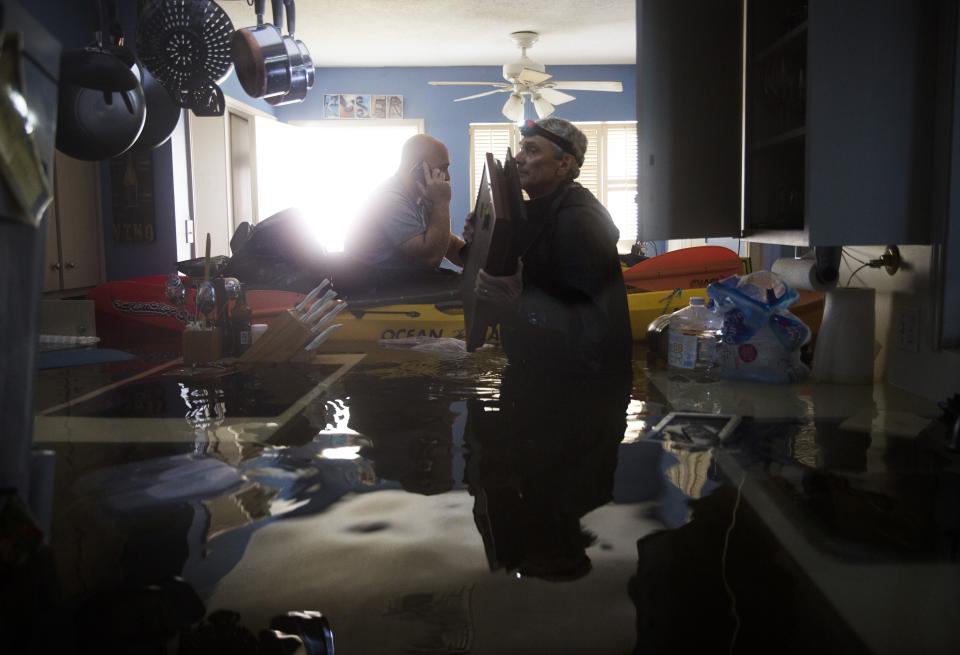
Two hours later, though, the water was threatening the shelter, too, and they moved to the home of friends, and then on Tuesday morning moved again to the home of their oldest son, 44-year-old Larry Jr., who made his way to them in his truck, taking more than two hours for what is normally a 30-minute drive from his home in the town of Katy.
As wrenching as it was to flee their home, it was worse to return. On Tuesday afternoon, Larry and Larry Jr. borrowed kayaks and paddled back to Bear Creek, where water nearly covered the mailboxes and almost lapped the roofs of cars. Reaching the house on Turf Valley Drive, they floated through the front door on three and a half feet of water. When they returned the next day it was almost a foot higher, owing to the controlled release from a nearby dam by the Army Corp of Engineers.
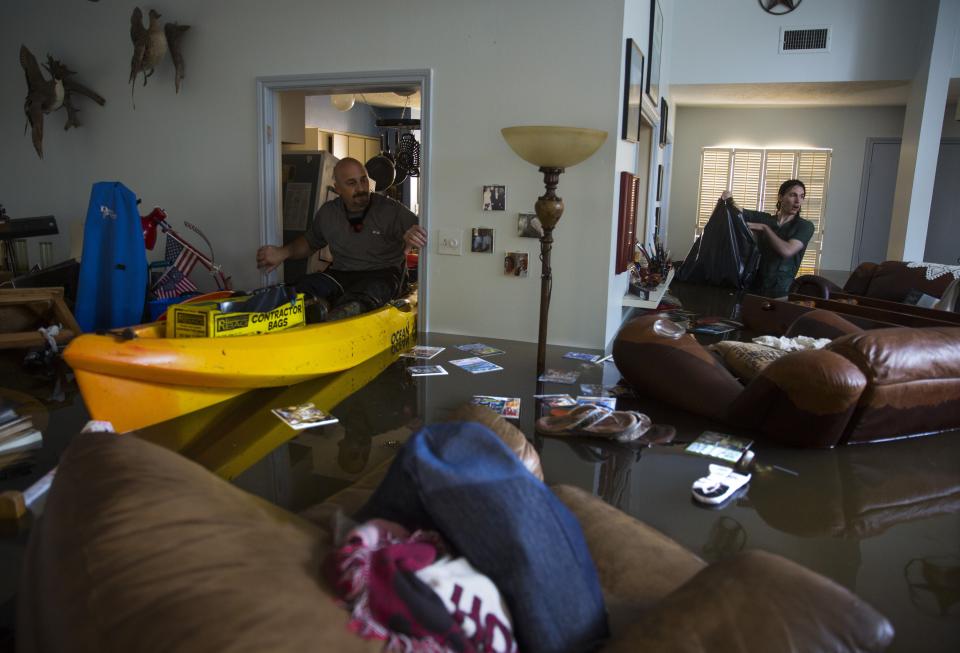
The house beneath all that water had long been “the heart of everything” for the family, Larry Jr. said. “This is where everybody gets together. Now you come here in a kayak and you’re floating around in a house, and all your belongings are just kind of floating around. To see everything like that, it’s surreal. It’s just sad.”
Photographer Erich Schlegel was paddling by as the Kosers first entered and came back again during the next few days as the water began to recede. He plans to return regularly over the months to chronicle what it takes to rebuild the lives of one of the thousands of families upended by Harvey. This is the first installment of what will likely be a yearlong project for Schlegel — chronicling the story of one typical family among thousands. No one story can stand for all, however. “There are people who have it a lot better, and there are people who have it a lot worse,” Larry Jr. says.
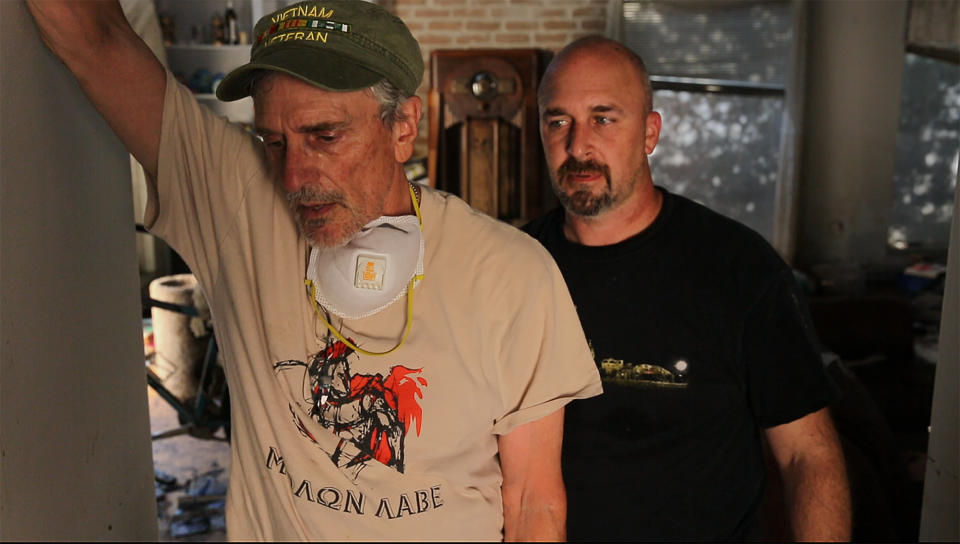
In the early visits, he says, the goal was to “salvage a few little treasures for each person,” necessarily small and light because that was all the kayak could carry. Photo albums. Passports. Documents from the safe. The purse that 19-year-old Micah had left on her bed, and some of the most recent canvases she had painted, which she had propped atop a tall dresser.
At one point a pocketknife floated by, and Larry Sr. felt something that was almost happiness. “My son had given that to me on my retirement,” he says. (His career had been as a speech pathologist.) He’d lost it soon after, and “I had turned that freaking couch over, I don’t know how many times, trying to find it because I knew it was in here. I knew it was in the house, I just couldn’t find it, and I couldn’t bear to tell him that I had lost the knife.” Harvey had found it for him.
Once it became possible to drive up to the house, the real work began — hauling out furniture and belongings, creating a pile 8 feet high on the front lawn. Yanking out the Sheetrock down to the studs. Bringing in fans and dehumidifiers. Treating everything with peroxide to fight mold.
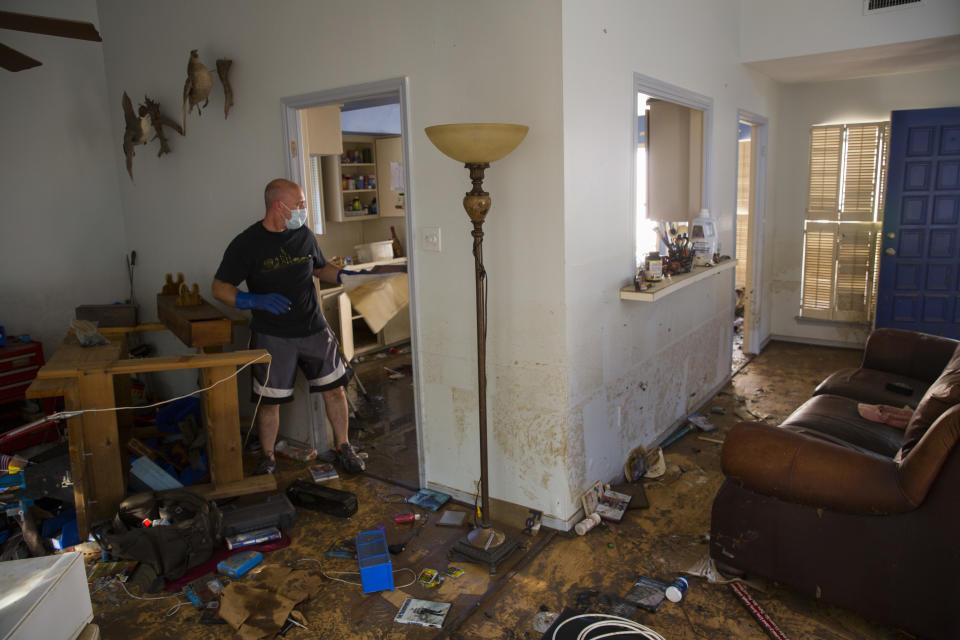
They are all bunking at Jr.’s three-bedroom, two-bath, 2,100-square-foot home in Katy. The youngest son, 22-year-old Matthew, takes the couch. Their biggest challenge is getting around the sprawl of Houston without any of their four cars, which were all destroyed in their driveway. All four were paid for, and they carried only liability insurance, so the adjuster has offered them just $900 total. For the moment they are borrowing from family and friends.
The insurance on the house was also insufficient. The house too is paid for, and they had flood insurance, but only up to $100,000 for the building and $40,000 for the contents, far short of what it will take to replace. And even were they to bring the house back to livable condition, Larry Sr. says he is not certain he would want to move back in.
“I’m not sure what we’re going to do with regards to living in it,” he says. “Maybe we will rent it or sell it, assuming I can do either of those, but I don’t know whether I want to go back there.”

He fears that by returning he risks re-losing it all, should the impossible happen twice. “It’s disheartening to see all the contents of your life lying ruined in a pile outside,” he says. “I can’t go through that again.”
For the moment he is trying to focus on what he has — the photographs taken gingerly from their albums, wiped off with antiseptic and dried on the floor; the few pairs of underwear, pants and shorts that he carried in his bug-out bags; the gifts of more clothing from church groups and friends; and his good fortune in having a bedroom to sleep in.
“We’ll get through this,” he says. “We’ll be a stronger family.” He reminds himself that there are others who are struggling more than he is, saying “I was blessed I had someplace to go.”
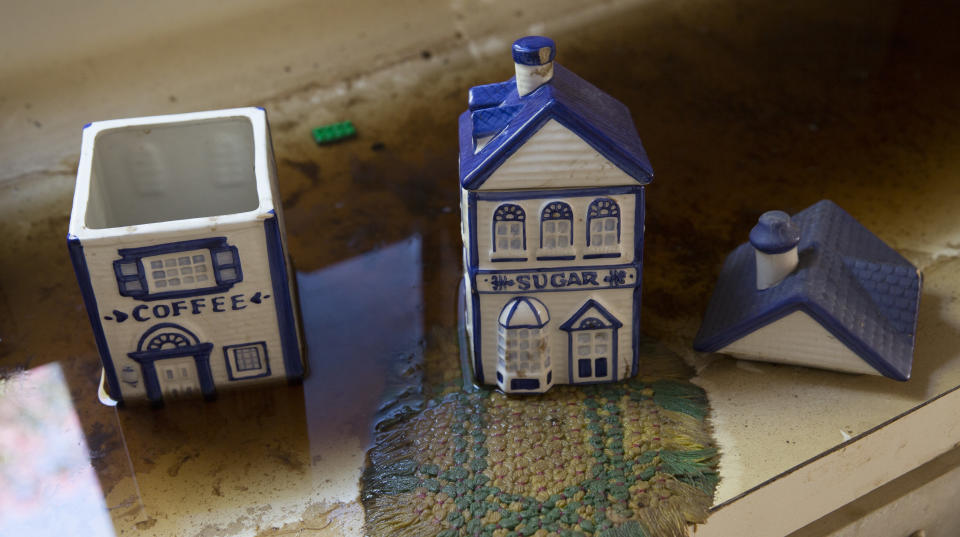
And in about a month there will be something to celebrate — Larry Jr. is getting married. His father sees that as both a blessing and a looming complication. “We don’t want to upset the newlyweds,” he says. “You want to have some kind of privacy when you are just married. I’m not sure where we’re going to go after the wedding.”
His son assumes they will stay. “It’s not a new relationship, we’ve been dating for 12 years,” says Larry Jr. “We really don’t need the privacy. Family comes first.”
“He’ll probably try to move out and we’ll try to keep him there as long as we can. I can’t imagine what it feels like for him, to be recently retired and then to watch everything you built, everything you had, just completely gone.”
Read more from Yahoo News:

